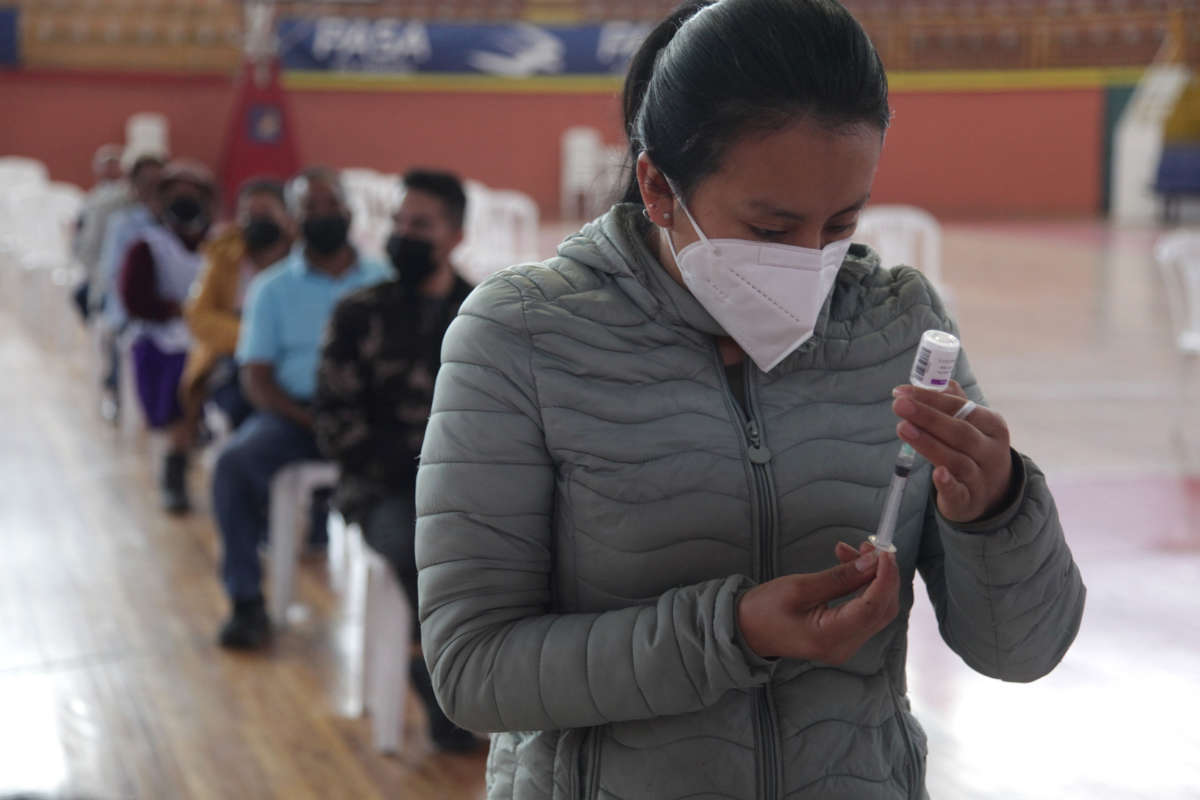The head of the World Health Organization on Tuesday implored countries not to let their guards down even as Omicron waves appear to have reached their peaks in parts of the globe, a trend that some nations have cited as a reason to lift public safety measures.
During his weekly media briefing, WHO Director-General Tedros Adhanom Ghebreyesus voiced hope that “the worst of this latest wave is done with” but stressed that “no country is out of the woods yet” as infection rates remain at record levels around the world.
“I remain particularly concerned about many countries that have low vaccination rates, as people are many times more at risk of severe illness and death if they’re unvaccinated,” said Tedros. “Omicron may be less severe, on average of course, but the narrative that it is mild disease is misleading, hurts the overall response, and costs more lives.”
“Make no mistake, Omicron is causing hospitalizations and deaths, and even the less severe cases are inundating health facilities,” he continued. “This pandemic is nowhere near over, and with the incredible growth of Omicron globally, new variants are likely to emerge, which is why tracking and assessment remain critical.”
While some recent developments — such as the Texas Children’s Hospital’s creation of a coronavirus vaccine that it has vowed to share patent-free — have spurred hopes of more equitable pandemic response efforts in the near future, just 9.6% of people in low-income countries have received at least one vaccine dose to date as the global health crisis enters its third year.
Due to the hoarding of doses and vaccine technology by rich countries and pharmaceutical giants, low-income nations have been forced to rely on inadequate spurts of donated doses that, in some cases, have been delivered close to their expiry dates.
Rich countries, meanwhile, are on track to waste hundreds of millions of coronavirus vaccine doses that they purchased for booster-shot campaigns. According to a new analysis by the data firm Airfinity, 240 million doses recently bought up by the United States, the United Kingdom, Japan, Canada, and the European Union are set to expire unused by March.
“Even after successful booster rollouts, there are surplus doses available that risk going to waste if not shared very soon,” Rasmus Bech Hansen, Airfinity’s CEO, said in a statement. “The emergence of Omicron and the likelihood of future variants shows there is no time to waste.”
Tedros raised similar concerns Tuesday, warning that “unless we change the current model, we’ll enter a second and even more destructive phase of vaccine inequity.” The WHO chief said COVAX, the United Nations-backed vaccine initiative, delivered its one-billionth dose this past weekend, but a recent analysis estimated that roughly 22 billion more mRNA vaccine doses are needed globally to end the pandemic.
“We need to make sure we share current vaccines equitably and we develop distributed manufacturing around the world,” Tedros said.
Join us in defending the truth before it’s too late
The future of independent journalism is uncertain, and the consequences of losing it are too grave to ignore. To ensure Truthout remains safe, strong, and free, we need to raise $31,000 in the next 48 hours. Every dollar raised goes directly toward the costs of producing news you can trust.
Please give what you can — because by supporting us with a tax-deductible donation, you’re not just preserving a source of news, you’re helping to safeguard what’s left of our democracy.
